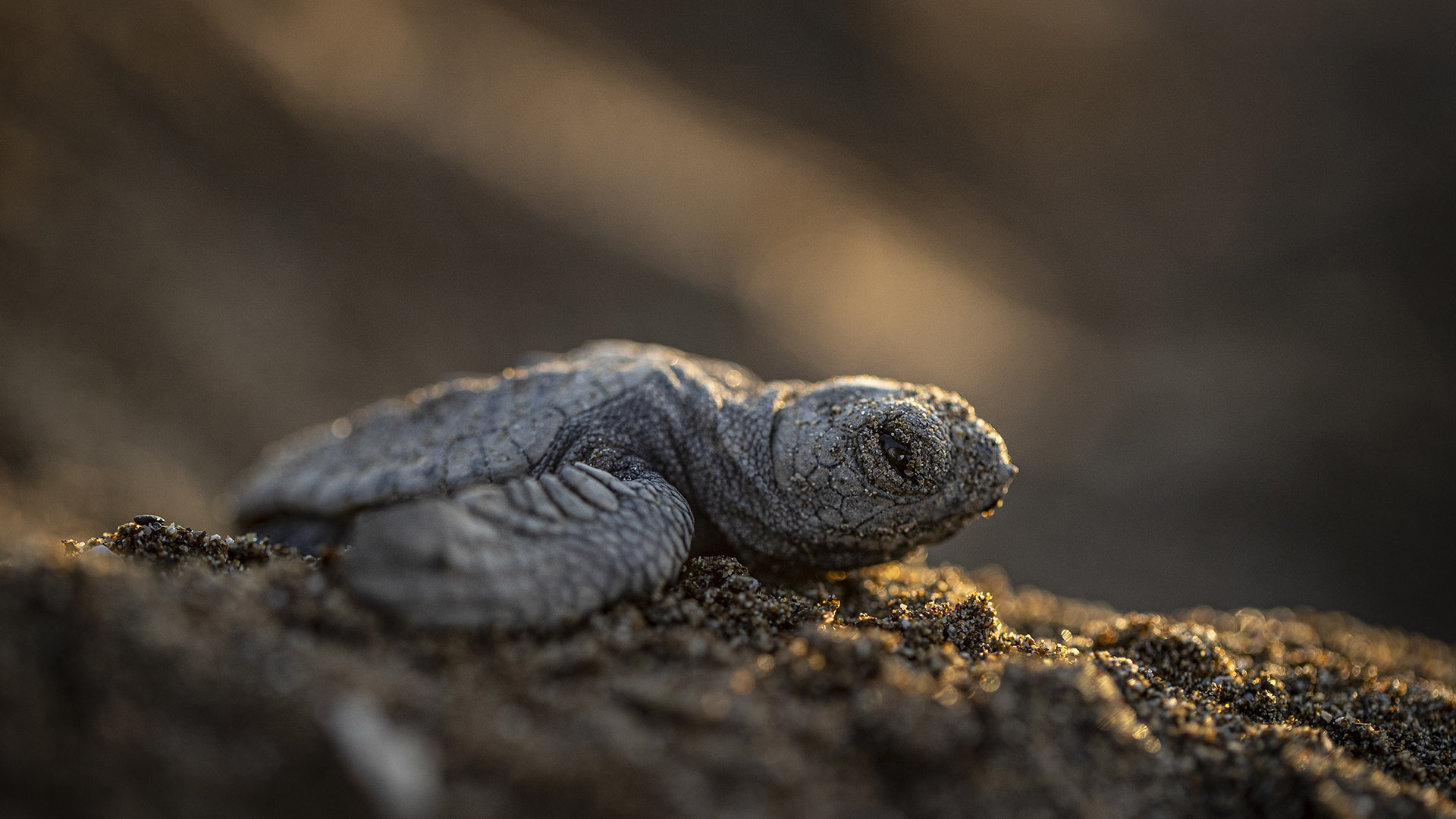Do animals really have instincts?
Do some species have instincts, or are these behaviors learned?

Across the animal kingdom, different species seem to have instinctual ways of finding their way through life: Newly hatched sea turtles that know to reach the ocean by moonlight, birds that migrate thousands of miles as the seasons change, and lioness mothers that know to nurse, protect and teach their young. But are these really instincts?
Before we ask how instinct works, we need to know what instinct is.
"To talk about instinct really is not possible unless you are also talking about the other side of the coin, which is acquired or learned [behaviors]," Robert Lickliter, a developmental psychobiologist at Florida International University, told Live Science.
In other words, "instincts" are actually behaviors influenced by factors that aren't immediately obvious. For instance, scientists long thought that imprinting — a behavior in which poultry, including turkey, geese, chicken and duck hatchlings, somehow identify and follow their mother — was an instinct: an innate, predetermined, genetically formed tendency that seemed unexplainable.
But starting in 1963, developmental psychologist Gilbert Gottlieb made a revolutionary discovery: Duck hatchlings are attracted to their mother's vocalizations because they make their own vocalizations inside the egg as an embryo, priming their auditory systems before they are even born. Gottlieb's duckling experiments pioneered a new understanding of what we mean by "instinct" and whether hardwired behaviors exist at all.
Related: Do lemmings actually jump off of cliffs?
As with the duckling example, other influences can happen before birth, while an organism is still developing.
Get the world’s most fascinating discoveries delivered straight to your inbox.
The classic nature-versus-nurture debate ignores this nuance. A cat's ability to land on its feet and a monarch butterfly's ability to migrate thousands of miles are what behavioral neuroscientist Mark Blumberg calls "species-typical behaviors."
"What people mean when they say 'instinct' is, it's a behavior that reliably is produced," Blumberg told Live Science.
Counterarguments to this developmental perspective suggest there's a range of behaviors specific to certain species. Another is that organisms haven't had enough experiences at birth to determine a particular behavior.
But experiences start before birth, as with the duck hatchlings' vocalizations. Moreover, there are many behaviors that scientists previously thought were instincts until science revealed their inner workings.
Sea turtles can navigate the oceans, for example, because they might possess a sort of "magnetic compass" that helps them follow complex migratory pathways. That's not a hardwired instinct because it is influenced by Earth's magnetic field. Similarly, a cat wouldn't know how to land on its feet if it underwent gestation and was born in space, indicating that such behaviors aren't simply coded in our genes. (Experiments with space rats have confirmed this.) In these extraordinary behaviors, the force is simply hidden, not nonexistent.
Another perplexing example is in parasitic birds that trick other species into raising their chicks by sneaking their own eggs into another bird's nest. How could a bird raised by a different species even know what species it belongs to — and subsequently, who to mate with? If a "host" bird recognizes the parasitic chick is not its own, it will attack it, which Blumberg says is one possible, but unconfirmed, explanation for how parasitic birds know how to recognize its own species. Other studies suggest the parasitic chick will hang out with its own species at night. But scientists still don't fully understand how this is possible.
"I don't think we've really done a whole lot to look for those cues and those patterns," Lickliter said. "We haven't been asking the right question."
Our genes also don't predetermine behaviors the way "instinct" presumes.
"The relationship between genes and behavior is highly indirect," Blumberg said. And "when you have different types of new behaviors, neurons alter their firing patterns, and that leads to alterations in gene expression. So, it's a bidirectional influence." In short, genes don't dictate behaviors like an on-off switch — and some life experiences, in turn, affect how our genes behave.
Basic behaviors are learned too, Blumberg added. All animals need to drink water to survive, yet experiments have shown that only rats raised on dry food — as opposed to wet food, providing hydration — learned to drink water when they were thirsty. It's for these reasons, Blumberg and Lickliter noted, that nature-versus-nurture offers a false dichotomy.
"Even for something as vital as water," Blumberg said, "there are experiences that matter for learning how to make your way around the world."

Marlowe Starling is a freelance environmental journalist who reports on climate, conservation, water, wildlife and culture. Her work has appeared in The New York Times, Sierra Magazine, Mongabay, PBS, the Miami Herald, the Associated Press and more. Marlowe earned a master's degree from NYU's Science, Health and Environmental Reporting Program and a bachelor's degree in journalism with a wildlife ecology specialization from the University of Florida. She has received fellowships from The Safina Center, the Council for the Advancement of Science Writing, the Florida Climate Institute and the Pulitzer Center and won the 2024 Marlene Sanders Award in Journalism.
 Live Science Plus
Live Science Plus






